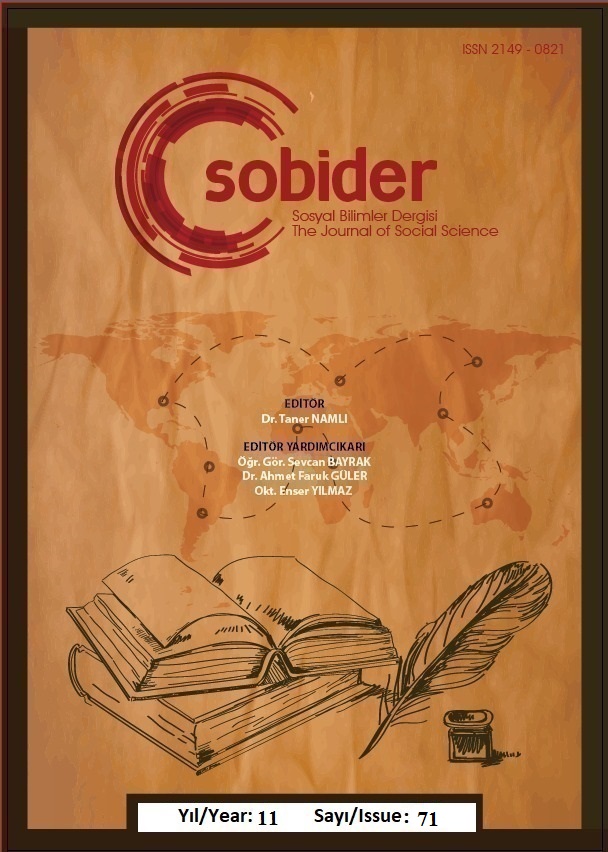Author :
Abstract
Bu çalışma, ikili refah piyasası çerçevesinde refah politikaları ve milliyetçi ideolojilerin kesişimini incelemekte ve refah milliyetçiliğinin refah hizmetlerinin ikili sunumunu nasıl şekillendirdiğini araştırmaktadır. Refah devleti çalışmalarını siyaset ve vatandaşlık temellerinin yanı sıra milliyetçilik ile refah ilişkisine yönelik gerçekleştiren refah milliyetçiliği, sosyal haklara bağlı olan ve bu haklardan faydalanma imkânı tanınan refah vatandaşlığı üzerine yoğunlaşmaktadır. Çalışmada vaka çalışmaları ve teorik perspektifler incelenerek göç, küreselleşme ve bölgesel entegrasyon sebebiyle refah sisteminde oluşan kısıtlamalar, milliyetçi duygular ve kapsayıcı refah politikaları arasındaki gerilimlerin aydınlatılması amaçlanmaktadır. Devletlerin vatandaşlarına yönelik ikili refah piyasası anlayışı, kolektif refah anlayışının dışına çıkılmasına ve sosyal politikaların ulaşılması mümkün olmayan hedeflere dönüşmesine yol açmaktadır. Bu bağlamda, ikili refah piyasası paradigması, politika uygulaması, siyasi retorik ve sosyo-ekonomik sonuçlar merceklerinden analiz edilmekte, milliyetçiliğin yükseldiği bir çağda refah devleti dönüşümlerinin karmaşıklığına dair iç görüler sağlamaktadır.
Keywords
Abstract
This study examines the intersection of welfare policies and nationalist ideologies within the framework of dual welfare markets, investigating how welfare nationalism shapes the dual provision of welfare services. Welfare nationalism, which focuses on the relationship between nationalism and welfare beyond the foundational aspects of politics and citizenship, emphasizes welfare citizenship tied to social rights and the opportunity to access these rights. By analyzing case studies and theoretical perspectives, the study aims to elucidate the tensions between restrictions arising in the welfare system due to migration, globalization, and regional integration, alongside nationalist sentiments and inclusive welfare policies. The dual welfare market understanding adopted by states leads to a departure from the collective welfare concept and transforms social policies into unattainable objectives. In this context, the paradigm of the dual welfare market is analyzed through the lenses of policy implementation, political rhetoric, and socio-economic outcomes, providing insights into the complexities of welfare state transformations in an era marked by the rise of nationalism.





